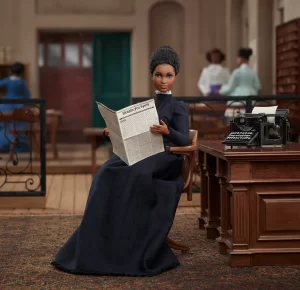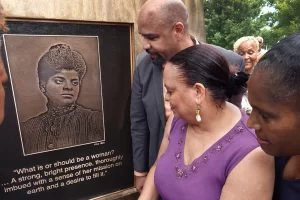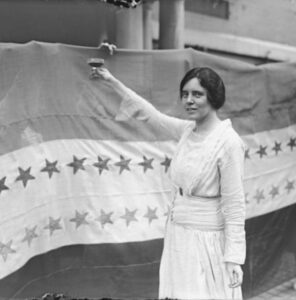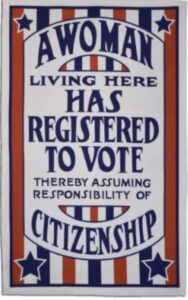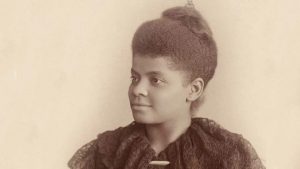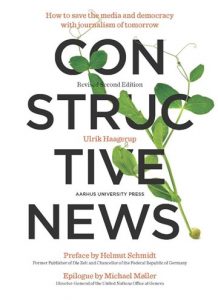Ida B. Wells
Memphis Free Speech
January 11, 2022The new Barbie doll of journalist and activist Ida B. Wells.
Jason Tidwell/Mattel
I had a Skipper and a Scooter. I wish I could have had an Ida B. -dayle
Journalist Ida B. Wells is commemorated with a Barbie doll for fearless activism
NPR
by Elizabeth Blair
Educator, journalist, anti-lynching activist and NAACP co-founder Ida B. Wells joins the pantheon of distinguished women honored by Mattel with her own signature Barbie doll. Resplendent in a deep blue, floor-length dress with lace details, the new Ida B. Wells doll also comes with a historically significant accessory: a miniature replica of the Memphis Free Speech, the newspaper where Wells became editor and co-owner in 1889.
Mattel has created numerous Barbie dolls to honor both historic and contemporary heroines in the hopes of inspiring “generations of girls to dream bigger than ever before.” It’s Inspiring Women Series includes dolls dedicated to Maya Angelou, NASA mathematician Katherine Johnson and singer Ella Fitzgerald.
The oldest of eight children, Ida B. Wells was born into slavery in Holly Springs, Miss., in 1862. When she was 16, both of her parents and a younger brother died during the yellow fever epidemic. Wells raised her younger siblings and became a teacher to support her family.
Daniel and Michelle Duster attend the dedication of a monument to their great-grandmother, journalist, educator, and civil rights leader, Ida B. Wells in Chicago last year.
Scott Olson/Getty Images
“I am honored that Barbie has chosen to celebrate my great-grandmother, Ida B. Wells, as part of its Inspiring Women Series,” says Michelle Duster, author, public historian, and great-granddaughter of Ida B. Wells in a statement. “My great-grandmother was a trailblazer, who courageously followed her convictions and challenged the status quo by fighting for civil rights and women’s suffrage. This is an incredible opportunity to shine a light on her truth and enduring legacy to empower a new generation to speak up for what they believe in.”
A pivotal moment in Wells’ life came in 1883 when she was traveling by train from Memphis to Woodstock, Tenn., where she was a teacher. When she refused to give up her seat and ride in a segregated car, she was forcibly removed. Wells later sued the Chesapeake, Ohio and Southwest Railroad Co. A local court ruled in her favor but the decision was eventually overturned in federal court.
Wells became a fierce anti-lynching activist. She investigated white mob violence and wrote scathing indictments of the lynchings of Black men. Her articles so angered locals, the offices of the Memphis Free Speech were destroyed.
In the preface to her 1892 pamphlet Southern Horrors: Lynch Laws In All Its Phases, Wells wrote, “It is with no pleasure I have dipped my hands in the corruption here exposed. Somebody must show that the Afro-American race is more sinned against than sinning, and it seems to have fallen on me to do so.”
And still they persisted…for decades.
August 18, 2020Alice Paul makes a toast to Tennessee’s ratification of the 19th Amendment to the U.S. Constitution giving women the right to vote, August 18th, 1920. The banner beside her was displayed outside the National Women’s Suffrage Party Washington DC, headquarters. [AP]
‘There will never be a new world order until women are a part of it.’ Alice Stokes Paul [1885 – 1977] was an American suffragist, feminist, women’s rights activist, and one of the main leaders/strategists of the campaign for the #19th Amendment to the U.S. Constitution.

‘Rain without thunder and lightening…’
June 10, 2020The Atlantic
Why Minneapolis Was the Breaking Point
Black men and women are still dying across the country. The power that is American policing has conceded nothing.
Seventeen-year-old Darnella Frazier was on her way out the door to a Memorial Day bonfire on the other side of town when her 9-year-old cousin made a request: Would Frazier walk her to a nearby store? Of course, Frazier replied.
She and her cousin were on their way back home, at the corner of 38th and Chicago, just south of downtown, when Frazier spotted a distraught man sprawled on the pavement. A pile of police officers was holding him down. At least one of the cops seemed to be on top of the man’s neck.
Frazier pulled out her cellphone and hit Record.
Within hours, the whole world had seen the video: Minneapolis police officer Derek Chauvin driving his knee into the neck of 46-year-old George Floyd, not only until Floyd died but for minutes after his life had been extinguished. What came next was a national crisis.
When I first sat down to begin writing this story, parts of many American cities were on fire and police officers in dozens of places were committing indiscriminate acts of violence—unleashing tear gas, rubber bullets, and worse—against the citizenry they had sworn an oath to serve and protect. Elected officials were pleading for peace as parts of their cities burned and the nation, watching in real time on television, asked “Why?”
Decades earlier, there’d been the determined journalism of Ida B. Wells, whose Memphis newspaper was burned to the ground by white supremacists. Wells is best remembered for her crusading work in the 1890s, which not only documented the frequency of southern lynchings but also provided what we’d now consider data analysis in order to disprove the racist lie that lynchings were happening because black men had a particular lust for and inclination to rape white women. Less well known is that Wells also dispatched herself to the scene of cases of police violence, providing essential scrutiny of an equally American strand of homicidal impunity.
“Those who profess to favor freedom, and yet depreciate agitation, are men who want crops without plowing up the ground. They want the WESLEY LOWERY is a Pulitzer Prize–winning journalist and the author of They Can’t Kill Us All: Ferguson, Baltimore, and a New Era in America’s Racial Justice Movement. He is currently a correspondent for 60 in 6, a spin-off of 60 Minutes on the mobile app Quibi.” the former slave Frederick Douglass proclaimed in 1857. “They want the ocean without the awful roar of its many waters.”
“This struggle may be a moral one; or it may be a physical one; or it may be both moral and physical; but it must be a struggle,” Douglass continued, before arriving at a more widely quoted sentence: “Power concedes nothing without a demand.”
Racism is not to blame, the thinking popular among at least some conservatives goes. It’s the people fighting racism who are the problem. If everyone could just stop talking about all of this stuff, we could go “back” to being a peaceful, united country. No one seems to be able to answer when, precisely, in our history that previous moment of peace, justice, and racial harmony occurred.
WESLEY LOWERY is a Pulitzer Prize–winning journalist and the author of They Can’t Kill Us All: Ferguson, Baltimore, and a New Era in America’s Racial Justice Movement. He is currently a correspondent for 60 in 6, a spin-off of 60 Minutes on the mobile app Quibi.
[Full Article]
Ida B. Wells
May 4, 2020Pulitzers honor Ida B. Wells, an early pioneer of investigative journalism and civil rights icon
Barbara Allen
In granting a posthumous citation to Ida B. Wells, the Pulitzer Prizes honors one of America’s earliest and most intrepid investigative reporters.
Ida B. Wells was born a slave in Mississippi in 1862. She became and a writer and publisher who crusaded against lynching and for civil rights in the deep South after the Civil War. It was death-defying work for a black woman, who spent months journeying through the Southern states, investigating the lynchings of black men through records research and in-person interviews — a process that laid the groundwork for modern investigative techniques.
At 30, and as the co-owner and editor for The Memphis Free Speech and Headlight, Wells took on that most famous work, attempting to investigate the trope that lynchings usually followed the rape of white women by black men. She discovered, of course, that this was patently false: “Nobody in this section of the country believes the threadbare old lie that Negro men rape white women,” Wells wrote. Instead, she wrote, the horrible violence — and threat of that violence — were simply a means for white citizens to terrorize and oppress African Americans. Her writing was published across the United States and abroad, and included the pamphlets-turned-books “Southern Horrors” and “The Red Record.”
She continued her career as a journalist and advocate for civil rights, even after her life was threatened and she was forced to flee Memphis, her newspaper offices plundered and her presses destroyed. She is considered one of the founders of the NAACP and her later advocacy included organizing boycotts, the suffrage movement and anti-segregation activism.
She died in Chicago in 1931 of kidney disease. She was 68.
Most recently, The Ida B. Wells Society for Investigative Reporting, established in 2016, is “a news trade organization dedicated to increasing and retaining reporters and editors of color in the field of investigative reporting.” It was founded by journalists Ron Nixon, Topher Sanders and Nikole Hannah-Jones, who also was named a Pulitzer winner today.
The citation comes with a bequest of $50,000, said Dana Canedy, Pulitzer administrator, with details to come.
Ulrik Haagerup
Constructive News Institute
“This is a breakthrough: For the first time future journalism students are being tested in constructive storytelling. At Danish @cfjsdu applicants had to reflect on CoJo as part of the test to enter our profession. Thanks.”
